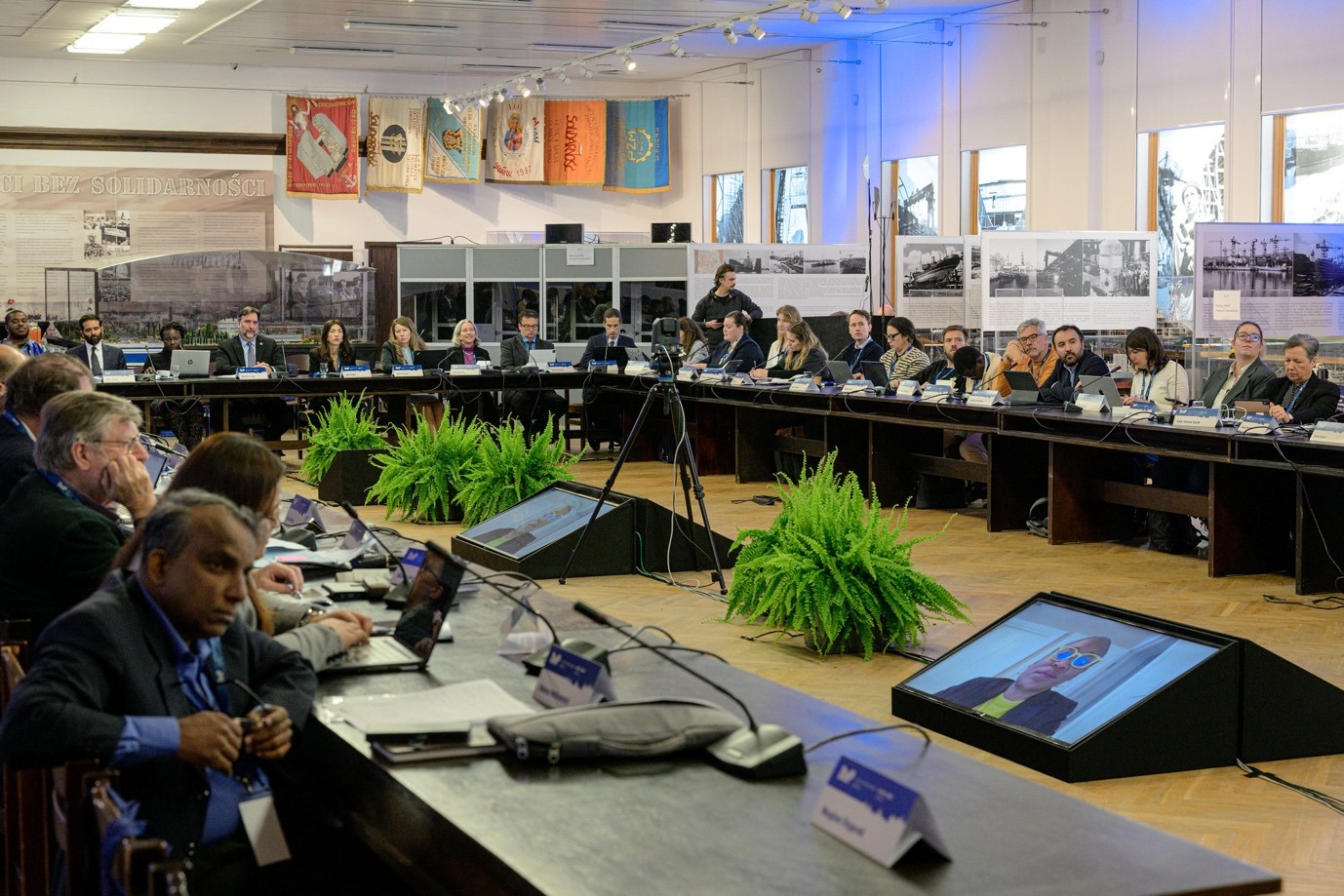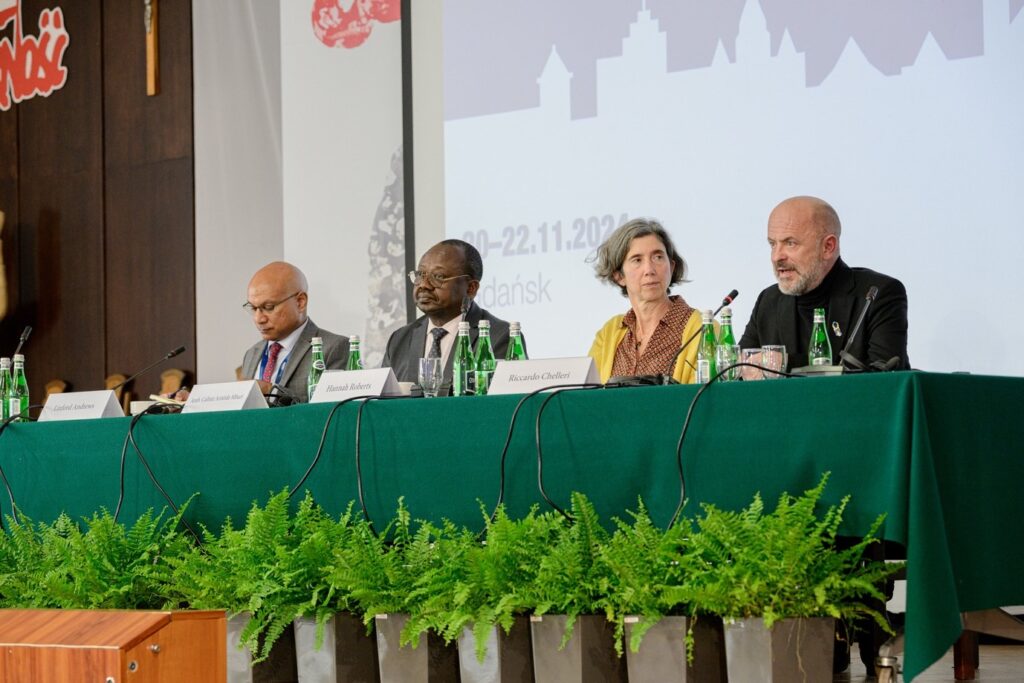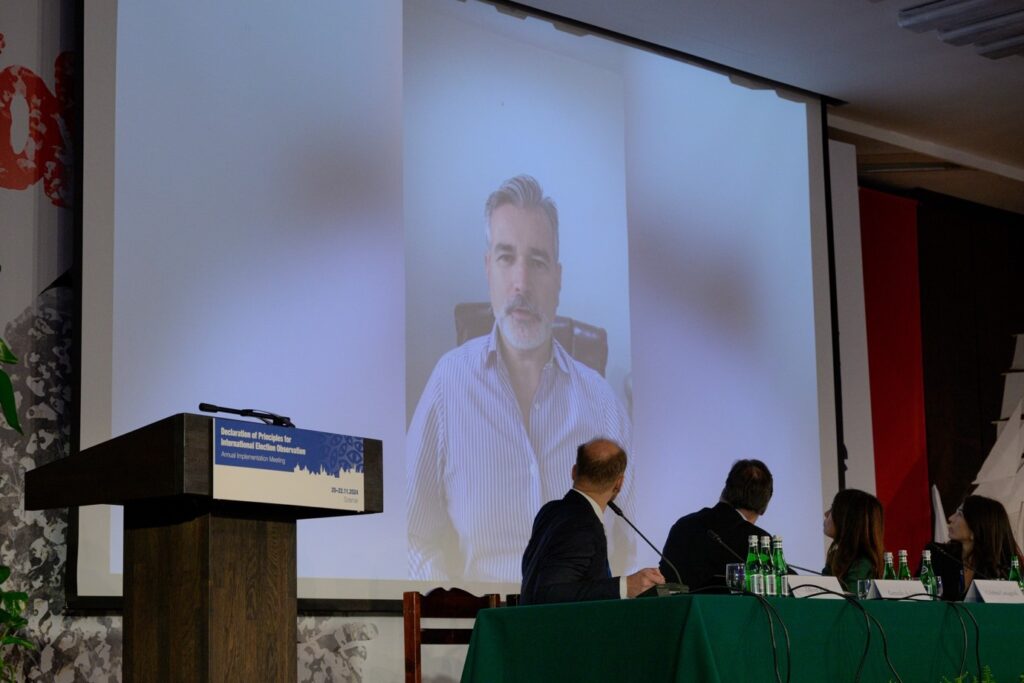DOP 2024
Day 2 Highlights: Communication, Post-Election Engagement, and Observer Rights

Session 2: Improving Public Understanding of our Observation Work and Communicating Complicated Messages
To kick off the session, participants were addressed though video clips by BBC World journalist Alan Kasujja, Commonwealth Director of Communications and former CNN journalist Satinder Bindra, as well as shown extracts of difficult questions from several ODIHR election observation mission press conferences.
“Who do you write your reports for and who is supposed to read it,” asked Kasujja, commenting on the “heavy language” of some election reports. “Why not go on Tiktok and other digital platforms?” Meanwhile, Bindra pointed to some of the factual questions journalists tend to want answers to, while the ODIHR clips showed journalists asking whether an election was “free and fair” or had been “stolen”.
Panellists discussed the challenges in boiling down findings to one or two word judgements on elections, especially when the multiple audiences of election missions – governments, election management bodies, civil society, media and the general public – are taken into consideration. Panellists from the EU, Commonwealth and ODIHR discussed their experiences and approaches, including expanding social media use and trying to engage with journalists over the longer term.
Participants also shared their experiences from the floor. One participant raised the problem of the jargon that observers often slip into – using terms like STOs, LTOs, CECs, DECs and PECs – which confuse those outside of the election bubble. Another participant pointed out that it is the role of observers to interpret their findings, providing analysis and conclusions, and not just to present factual information.
Another participant highlighted the need for developing key messages in addition to the statements of findings. The idea of having different products for different groups was also mooted, with one example of a video message targeted specifically at ‘Gen Z’ being mentioned.
One organization mentioned that the experience of using video messages on social media to present findings during the Covid-19 pandemic when holding traditional press conferences was not possible had proved so successful in reaching a much wider audience directly that they have continued the practice to this day.
Using “pre-bunking” to get ahead of potential disinformation related to election observers was also mentioned as a good practice.
In conclusion, there was general agreement for the need for observation missions to be as clear as possible and to adapt to new developments in communication.
Session 3: Strengthening DoP Engagement in the Post-Election Period

The particpants discused various aspects of post-election engagement, and the principles behind it, including dialogue and open engagement; appreciation of different methodologies used by partners (with an element of harmonising approaches); respect for the sovereignty of the countries in which elections are observed; and the establishment of a common agenda to strengthen future elections. Different ways of engaging were discussed and through different formats, such as presentations of final reports, roundtable discussions of the final report with election stakeholders, follow-up missions, technical assistance, monitoring and evaluation of technical assistance, and pre-election assessment missions, as well as through diplomatic channels.
Factors that can support the process include coordination between DoP organizations on follow up activities, sharing of final reports among DoP organizations, and the synchronization of post-election activities with national stakeholders among DoP organizations. The value of platforms for institutions supporting democracy such as EMBs for peer learning and exchanges was also stressed.
One of the needs identified was the tracking of the implementation of recommendations, which is a useful way to measure impact and change over the longer term. Other challenges mentioned included the lack of political will, post-election unrest and turnover of election administration staff after elections. Possible strategies for effective follow-up include sustained engagement of institutions and governments; the linking of technical assistance to recommendations from observation missions; and focusing on what can be improved and how, rather than on what did not work.
It was noted that some international observer organizations have made considerable efforts in recent years to improve their recommendations, reducing them in number and making them clear and more actionable. It was pointed out that legal recommendations are often more difficult to make progress on that operational ones. The need for national ownership of recommendations, including electoral reform, was stressed, so that civil society, national parliaments and regional organizations are more willing to take them forward.
It was also stressed that EMBs often need to improve their own lessons learned processes, so that they become meaningful exercises that lead to tangible improvements between election cycles.
While not all election observation organizations engage in follow-up activities, many organizations have put increasing focus on developing methodologies in this area, and a number of new tools are being produced, such as a roadmap for electoral reform being developed by Westminster Forum for Democracy and the IFES handbook for EMBs, Lessons Learned Processes: Advancing to the Next Elections. The Commonwealth Secretariat is also planning a database of its election recommendations, similar to the one already used by ODIHR.
Session 4: Observer Rights and Impact of Intimidation and Obstruction

The session started with a powerful video describing the intimidation experienced by different observer groups around the world.
Panellists described the worrying experiences of their own observers, as well as domestic observer groups, amid an increasing climate of political polarization. Examples were given of intimidation at many levels, including of the heads of mission.
Steps that are being taken to increase recognition of observer rights were also presented. See here for more about the steps being taken.
